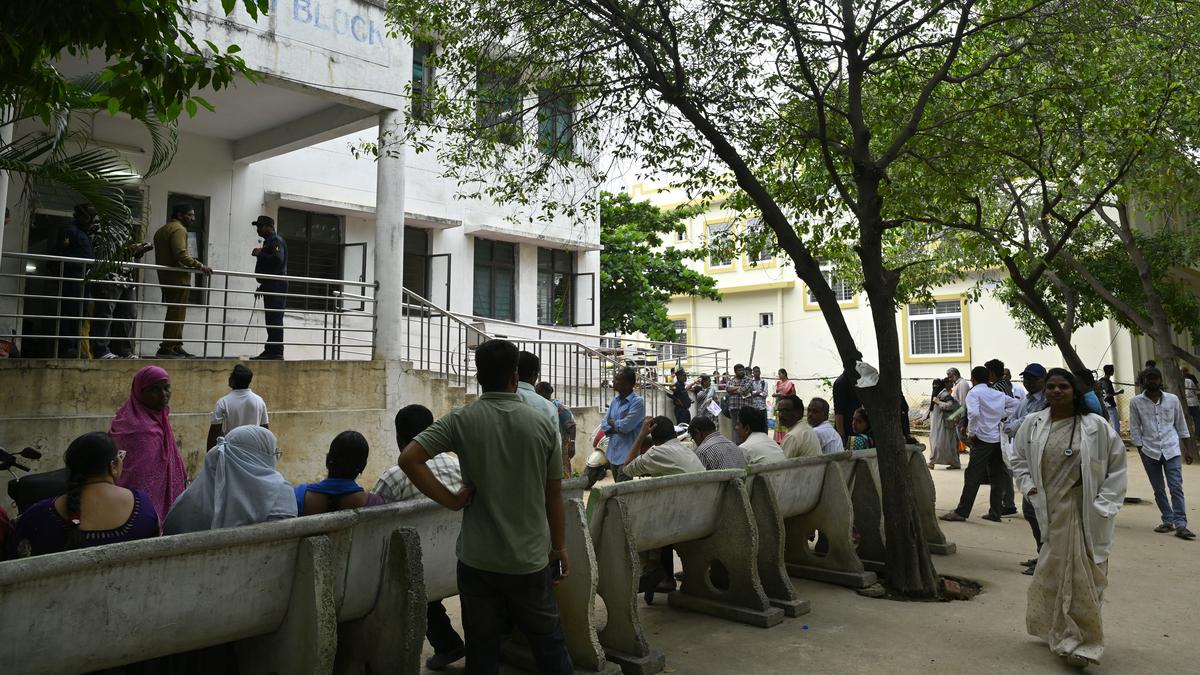Now Reading: Institute of Mental Health: Breaking Barriers to Healing and Hope
-
01
Institute of Mental Health: Breaking Barriers to Healing and Hope
Institute of Mental Health: Breaking Barriers to Healing and Hope

Rapid Summary:
- Institute of Mental Health (IMH) at Erragadda, Hyderabad is a key mental health institution serving Telangana adn neighboring states.
- Historical roots: Established in 1907 under the Nizam’s rule in Jalna; moved to Erragadda in 1908. Now operates on a reduced campus of 40 acres after land allocations for other purposes.
- Patient statistics: Daily OPD footfall ranges from 400-500 with approximately 600 inpatient beds,including nearly 50 earmarked for prisoners requiring psychiatric care.
- New infrastructure advancement: A multi-functional block worth ₹25 crore nearing completion will include advanced facilities like Clinical Psychology departments, rTMS technology, rehabilitation centers, emergency rooms, and hostels for postgraduate students. Funding delays remain a challenge.
- Key challenges:
– Patients often miss follow-ups or discontinue medications due to stigma surrounding mental illnesses or logistical hurdles like long travel distances from rural areas to Hyderabad.
– Familial reluctance to take back recovered patients complicates discharge processes legally and socially for IMH staff.
– Infrastructure gaps exist in closed ward systems and some patient care facilities despite robust medical support services being available.
– Stigma related to seeking psychiatric help persists but has diminished post-COVID due to increased mental health awareness.
Indian Opinion Analysis:
The Institute of Mental Health at Erragadda is not only vital as a healthcare facility but also serves as an evolving narrative about India’s progress on addressing mental health issues systemically. With increasing patient numbers post-COVID, IMH reflects both the demand for psychiatric services and the untapped gaps within public healthcare infrastructure-highlighting how awareness alone does not solve accessibility challenges for rural populations.
The upcoming multi-functional block represents advancements aimed at decentralizing treatment delivery; however, financial constraints hint that administrative efficiency needs improvement. The project may offer transformational potential if completed successfully without operational bottlenecks.Stigma continues influencing outcomes indirectly via missed follow-ups or familial abandonment-a deeper cultural issue requiring sustained nationwide public education campaigns. meanwhile, IMH does present optimism through compassionate care standards yet requires targeted investments into facility upgrades.
As India charts its trajectory around equitable healthcare reforms focused on psychological wellness alongside physical health systems-mental institutions like IMH could act as benchmarks provided institutional accountability grows alongside service expansion projects.
Read more: Link

























